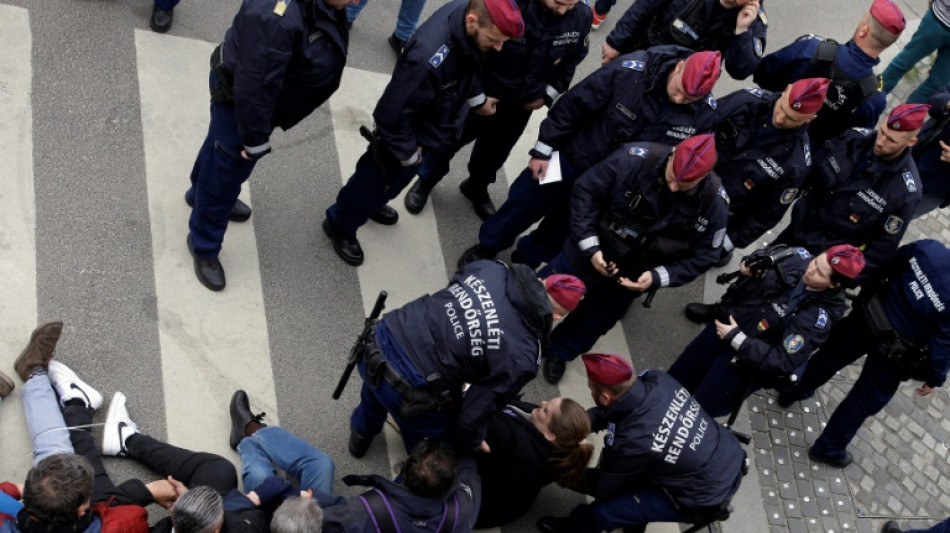
-
 UK counter-terrorism unit probes rappers Kneecap but music stars back band
UK counter-terrorism unit probes rappers Kneecap but music stars back band
-
Yamal heroics preserve Barca Champions League final dream

-
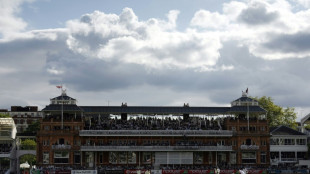 2026 T20 World Cup 'biggest women's cricket event in England' - ECB
2026 T20 World Cup 'biggest women's cricket event in England' - ECB
-
Bangladesh begins three days of mass political rallies
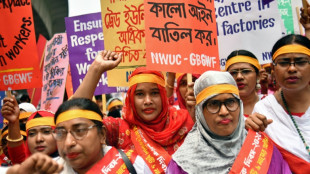
-
 Children learn emergency drills as Kashmir tensions rise
Children learn emergency drills as Kashmir tensions rise
-
Millions of children to suffer from Trump aid cuts

-
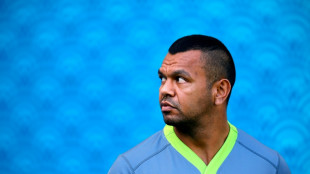 Veteran Wallaby Beale set for long-awaited injury return
Veteran Wallaby Beale set for long-awaited injury return
-
Syria's Druze take up arms to defend their town against Islamists

-
 Tesla sales plunge further in France, down 59% in April
Tesla sales plunge further in France, down 59% in April
-
US calls on India and Pakistan to 'de-escalate'

-
 Israel reopens key roads as firefighters battle blaze
Israel reopens key roads as firefighters battle blaze
-
Europe far-right surge masks divisions

-
 James will mull NBA future after Lakers playoff exit
James will mull NBA future after Lakers playoff exit
-
Ukraine's chief rabbi sings plea to Trump to side with Kyiv

-
 Australian mushroom meal victim 'hunched' in pain, court hears
Australian mushroom meal victim 'hunched' in pain, court hears
-
Lakers dumped out of playoffs by Wolves, Rockets rout Warriors

-
 Booming tourism and climate change threaten Albania's coast
Booming tourism and climate change threaten Albania's coast
-
US reaching out to China for tariff talks: Beijing state media

-
 Tariffs prompt Bank of Japan to lower growth forecasts
Tariffs prompt Bank of Japan to lower growth forecasts
-
Kiss faces little time to set Wallabies on path to home World Cup glory

-
 Serbian students, unions join forces for anti-corruption protest
Serbian students, unions join forces for anti-corruption protest
-
Slow and easily beaten -- Messi's Miami project risks global embarrassment

-
 Fan in hospital after falling to field at Pirates game
Fan in hospital after falling to field at Pirates game
-
Nuclear power sparks Australian election battle

-
 Tokyo stocks rise as BoJ holds rates steady
Tokyo stocks rise as BoJ holds rates steady
-
Bank of Japan holds rates, lowers growth forecasts

-
 'Sleeping giants' Bordeaux-Begles awaken before Champions Cup semis
'Sleeping giants' Bordeaux-Begles awaken before Champions Cup semis
-
Napoli eye Scudetto as Inter hope for post-Barca bounce-back

-
 Germany's 'absolutely insane' second tier rivalling Europe's best
Germany's 'absolutely insane' second tier rivalling Europe's best
-
PSG minds on Arsenal return as French clubs scrap for Champions League places

-
 UK WWII veteran remembers joy of war's end, 80 years on
UK WWII veteran remembers joy of war's end, 80 years on
-
Myanmar junta lets post-quake truce expire

-
 Rockets romp past Warriors to extend NBA playoff series
Rockets romp past Warriors to extend NBA playoff series
-
Messi, Inter Miami CONCACAF Cup dream over as Vancouver advance

-
 UN body warns over Trump's deep-sea mining order
UN body warns over Trump's deep-sea mining order
-
UK local elections test big two parties

-
 US judge says Apple defied order in App Store case
US judge says Apple defied order in App Store case
-
Seventeen years later, Brood XIV cicadas emerge in US

-
 Scorching 1,500m return for Olympic great Ledecky in Florida
Scorching 1,500m return for Olympic great Ledecky in Florida
-
Israel's Netanyahu warns wildfires could reach Jerusalem

-
 Istanbul lockdown aims to prevent May Day marches
Istanbul lockdown aims to prevent May Day marches
-
Australian guard Daniels of Hawks named NBA's most improved

-
 Mexico City to host F1 races until 2028
Mexico City to host F1 races until 2028
-
Morales vows no surrender in bid to reclaim Bolivian presidency
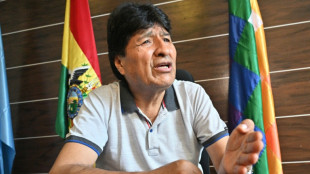
-
 Ukraine, US sign minerals deal, tying Trump to Kyiv
Ukraine, US sign minerals deal, tying Trump to Kyiv
-
Phenomenons like Yamal born every 50 years: Inter's Inzaghi

-
 Ukraine, US say minerals deal ready as Kyiv hails sharing
Ukraine, US say minerals deal ready as Kyiv hails sharing
-
Global stocks mostly rise following mixed economic data

-
 O'Sullivan says he must play better to win eighth snooker world title after seeing off Si Jiahui
O'Sullivan says he must play better to win eighth snooker world title after seeing off Si Jiahui
-
Sabalenka eases past Kostyuk into Madrid Open semis


Hungarian lawmakers back curbs on LGBTQ people, dual nationals
Hungarian lawmakers on Monday overwhelmingly backed constitutional changes targeting the country's LGBTQ community and dual nationals, the latest step to strengthen longtime nationalist Prime Minister Viktor Orban's self-styled "illiberal" brand of democracy.
Since his return to power in 2010, Hungary's leader has widely restricted the rights of the LGBTQ community, the media, courts and academia. In mid-March, he vowed to undertake an "Easter cleanup" against his domestic opponents he has called "stink bugs".
The constitutional amendment -- which proclaims that people can only be male or female -- echoes moves on gender by Orban's ally US President Donald Trump.
It also allows the "temporary" stripping of citizenship from some dual or multiple nationals, which could target Hungarian-American billionaire George Soros, a regular fixture of populist conspiracy theories.
Ahead of the vote on the amendment -- which passed parliament with 140 votes in favour to 21 against -- a few dozen protesters temporarily blocked an entrance to parliament before police hauled them off.
"When we chained ourselves up during the constitution's first overhaul in 2011, we never thought that 14 years later, we would have to do the same thing," said opposition lawmaker Timea Szabo.
Opposition politicians from the liberal Momentum unfurled a banner that read "You can ban us, but not the truth" in parliament, while protesters outside the building chanted "We will not allow ourselves to be transformed into Putin's Russia".
- Raft of changes -
Besides the provision proclaiming that people can only be male or female, another declares that children's rights for their "proper physical, mental and moral development take precedence over all other fundamental rights", except the right to life.
That provision is seen as a way to strengthen the legal foundations for the prohibition of the Pride march.
Another prominent provision empowers the government to temporarily strip Hungarian citizenship from dual or multiple nationals -- even if they acquired their nationalities by birth.
The governing party suggested the move is aimed at "speculators" financing "bogus NGOs, bought politicians and the so-called independent media" from abroad.
A related piece of legislation -- to be voted on at a later date -- specifies that Hungarian citizenship can be suspended for a maximum of 10 years and those affected can be expelled from the country.
Nationals from other EU member states would be exempt, together with a few other countries in Europe, according to the proposal.
Last week, more than 30 prominent Hungarian legal experts castigated the measure as "an unprecedented construction in international law" that could be contrary to binding human rights conventions.
- 'Soft Putinism' -
Critics say the proposed legal changes further erode democratic rights in the central European country, moving the EU member state even closer to the kind of authoritarianism seen under Russia's President Vladimir Putin.
"You could consider this soft Putinism," Szabolcs Pek, chief analyst at the think tank Iranytu Intezet, told AFP.
"People are not falling out of the window, but the government is increasingly limiting the space for opposition politicians, journalists and civil society," he said.
Politically, the measures are seen as an effort to shore up dwindling support for the ruling coalition, divide the opposition along ideological lines, and court the far right ahead of next spring's parliamentary election.
Orban's legislative "boisterousness" is a bid to take back control of the public agenda, according to Pek.
"In this respect, he has been successful, because public discourse is no longer about the failing public services or the weak economy," Pek said.
Since last year, Orban has faced an unprecedented challenge from former government insider-turned-opposition leader Peter Magyar, with his TISZA party eroding Fidesz's longtime solid lead, according to several opinion polls.
Pek stressed the Pride ban is a "trap" for Magyar: standing up for LGBTQ rights could lose him conservative supporters, but his current silence might drive left-wing and liberal voters to other opposition parties.
O.Schlaepfer--VB
